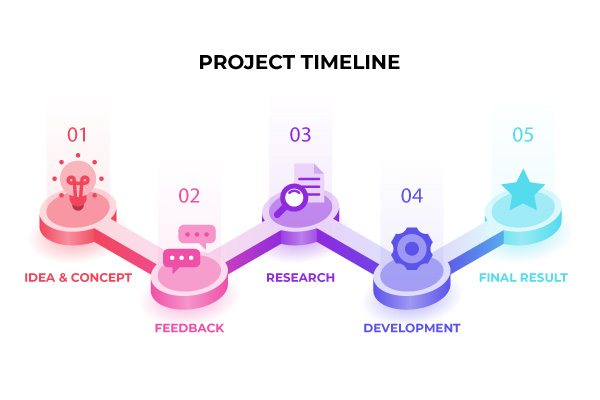Centre to Boost Water and Waste Management in 100 Large Cities: The Union Budget 2024

India’s Finance Minister Nirmala Sitharaman recently announced a major new initiative to improve water supply, sewage treatment and waste management in 100 large cities across the country (India). This initiative is part of the Union Budget 2024 for the upcoming year, and it is expected to result in significant enhancements to urban infrastructure. Here’s everything you need to know about this ambitious project.
Overview

According to the Union Budget 2024, the Indian government, in partnership with state governments and multilateral development banks, is planning to initiate a significant project aimed at improving water and waste management systems. This project will target 100 large cities, with the goal of improving their cleanliness, efficiency, and sustainability.
Purposes of the initiative.

This program aims to improve water availability and quality in these urban areas. To provide residents with safe and reliable water supply systems, which will be supplemented by constructing new water supply systems and upgrading the current ones.
Goals of the Project

Improved Water Supply: One of the primary goals of this initiative is to enhance the availability and quality of water in these cities. This will include the development of new water supply systems and the upgrading of existing ones to ensure that residents have access to clean and reliable water.
Better Sewage Treatment: Proper sewage treatment is crucial for maintaining public health and environmental safety. The project will focus on building and upgrading sewage treatment plants to handle waste more effectively, reducing pollution and improving sanitation.
Enhanced Waste Management: Solid waste management is another key component of the plan. The project aims to improve waste collection, segregation, and disposal processes, making cities cleaner and more liveable.
How the Project Will Be Implemented

Bankable Projects: The Centre plans to promote these water and waste management projects as “bankable” ventures. This means that the projects will be designed in a way that makes them financially viable and attractive to investors. By doing so, the government hopes to attract funding and ensure the successful implementation of these initiatives.
Partnerships: Successful implementation will require cooperation between multiple parties. The Centre will work closely with state governments to align local needs with the overall goals of the project. Additionally, multilateral development banks will play a crucial role by providing financial support and expertise.
Use of Treated Water: An innovative aspect of the project is the planned use of treated water. Instead of wasting this valuable resource, the treated water will be used for irrigation and to fill up tanks in surrounding areas. This approach will help conserve water and support agricultural activities.
Expected Benefits

Cleaner Cities: One of the most immediate benefits of this project will be cleaner and more hygienic urban environments. Improved waste management and sewage treatment will reduce pollution and enhance the quality of life for residents.
Better Water Access: By improving water supply systems, the project will ensure that more people have access to clean drinking water. This is crucial for health and well-being, particularly in rapidly growing urban areas.
Sustainable Practices: The initiative supports sustainable practices by promoting the reuse of treated water and improving waste management. These practices will help cities become more environmentally friendly and resilient to future challenges.
Economic Growth: Improved infrastructure can drive economic growth by creating jobs, boosting local businesses, and attracting investment. Better living conditions also make cities more attractive places to live and work.
Implementation Timeline

According to the Union Budget 2024, the exact timeline for the implementation of these projects has not been specified yet. However, the government has emphasized that they are committed to starting the work soon and will provide updates on progress as the projects move forward.
Public Involvement

The success of this initiative will also depend on public involvement. Residents are encouraged to participate in local waste management programs, conserve water, and support cleanliness efforts in their communities. Public awareness campaigns will be an essential part of ensuring that the benefits of these projects are fully realized.
Challenges and Considerations

While the project promises many benefits, it will also face several challenges:
Funding and Resource Allocation: Ensuring adequate funding and effective use of resources will be critical. The government will need to manage finances carefully to avoid delays and ensure that projects are completed on time.
Coordination Between Stakeholders: Coordinating efforts between the Centre, state governments, and development banks can be complex. Clear communication and effective collaboration will be essential for success.
Community Engagement: Engaging with local communities and addressing their needs and concerns will be important for the successful implementation of the projects. Ensuring that residents are involved and informed will help build support and enhance outcomes.
Conclusion
The Centre’s new initiative in the Union Budget 2024 to boost water supply, sewage treatment, and solid waste management in 100 large cities is a significant step toward improving urban infrastructure in India. By focusing on bankable projects, partnering with state governments and multilateral development banks, and using treated water creatively, this plan aims to create cleaner, more sustainable cities.
As the project unfolds, it will be important to monitor its progress, address any challenges, and ensure that the benefits are realized across all targeted cities. With effective implementation and community involvement, this initiative has the potential to make a positive and lasting impact on urban life in India.
